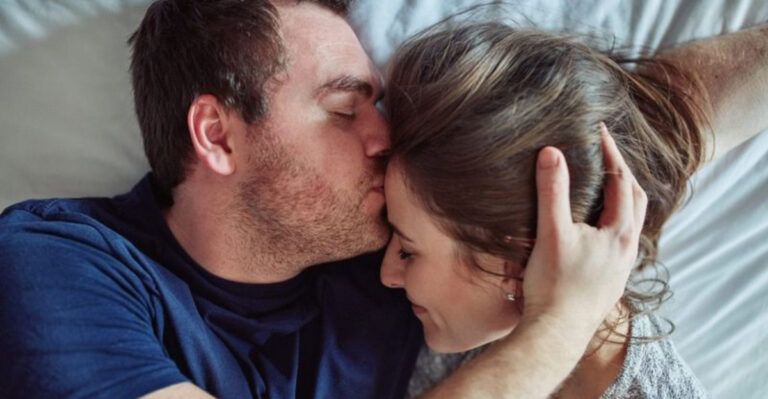35 Subtle Signs You’re Mourning Your Marriage While Still Wearing the Ring
Let’s have a real talk. You might not even realize it yet, but something’s shifted, hasn’t it?
Your heart feels heavy, your days a little greyer, and your marriage… well, it’s not the safe harbor it used to be. You’re still in it, living the motions, but deep down, you sense it’s unraveling. Let’s unpack this together.
Here are 35 signs you may be mourning your marriage while it’s still technically intact. Take a deep breath—this is your moment to feel seen and understood.
1. You dread coming home every day.

Home. It used to be your refuge, a safe space to collapse into after a long day. But now, turning the key in the lock fills you with dread. You linger in your car, scrolling aimlessly on your phone or making excuses to run another errand. Once inside, the silence is deafening.
Sure, there’s noise—kids, the TV, maybe a barking dog—but it feels hollow, like the emotional warmth packed its bags and left long ago. What happened to the place where you once felt most at ease?
Now, the walls feel closer, the air heavier, and every room echoes memories that feel more like ghosts. It’s not the house itself that’s the problem—it’s the connection that made it a home. You find yourself wondering, When did my sanctuary become just another reminder of what’s been lost?
2. Your wedding photos are gathering dust.
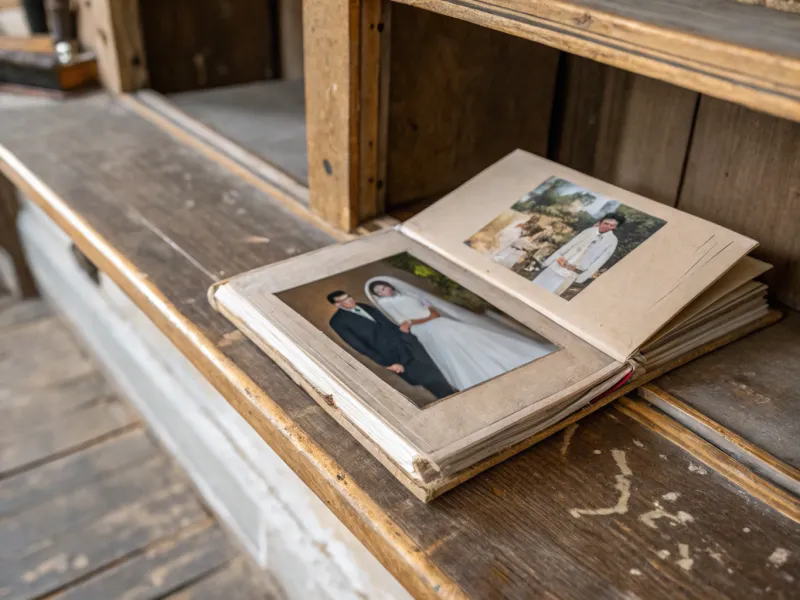
There it is, tucked away on a shelf or buried in a box—the wedding album you once couldn’t stop flipping through. It was your treasure, a collection of moments that marked the beginning of something beautiful. But now?
It’s gathering dust, ignored like an old relic you’re not ready to part with but can’t bear to look at. The smiles in those photos feel like strangers, and the promises they represent sting more than they inspire. You avoid it, not because you’ve forgotten those moments, but because facing them feels too raw.
It’s easier to pretend the album isn’t there than confront the gap between who you were then and who you’ve become now. It’s not just about the photos; it’s about the weight they carry, the story they tell, and the chapter you’re afraid to admit might be closing.
3. You’re more comfortable alone than together.

Solitude wasn’t something you used to crave. You loved the closeness, the shared moments of quiet or chaos. But now, being alone feels like a relief. It’s not loneliness—it’s self-preservation. When you’re alone, there’s no awkward tension to tiptoe around, no silent accusations lingering in the air.
It’s just you, finally able to breathe without the weight of a strained connection bearing down. Being together, on the other hand, feels exhausting. Even in the same room, the space between you feels vast. The silence isn’t comfortable; it’s stifling.
So, you retreat into your own world—a favorite show, a solo walk, maybe even just scrolling endlessly on your phone. It’s not that you’ve stopped caring; it’s that togetherness has lost the warmth it once had. You wonder if the peace of solitude is a sign of what’s missing—or what you’re protecting yourself from.
4. Date nights feel like obligations.
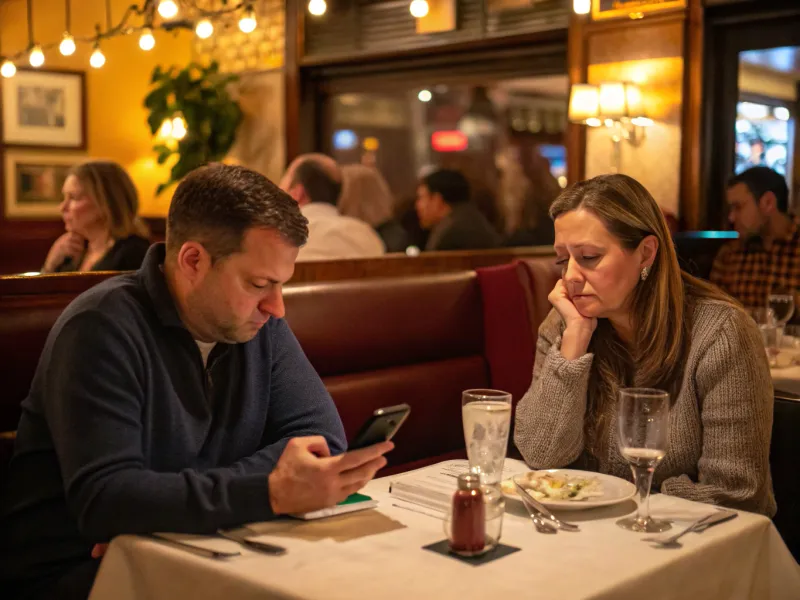
Remember when date nights were the highlight of your week? They were spontaneous adventures filled with laughter and connection. Now, they feel more like scheduled chores—something you tick off a list rather than anticipate with excitement. The magic that once was has been replaced by a sense of duty.
Sitting across the table feels like a performance you’re not eager to give. The conversation stalls, and you both end up scrolling through your phones—an escape into screens rather than facing the void between you. The lingering eye contact and flirtatious banter are replaced by awkward silences and forced smiles.
It’s not about the lack of effort; it’s about the emotional fatigue that’s seeped in. You try to reignite the spark, but the flame just doesn’t catch. The outings turn into rituals, moments of pretending rather than genuine connection, leaving you wondering if the effort is worth the dwindling returns.
5. You avoid talking about future plans.
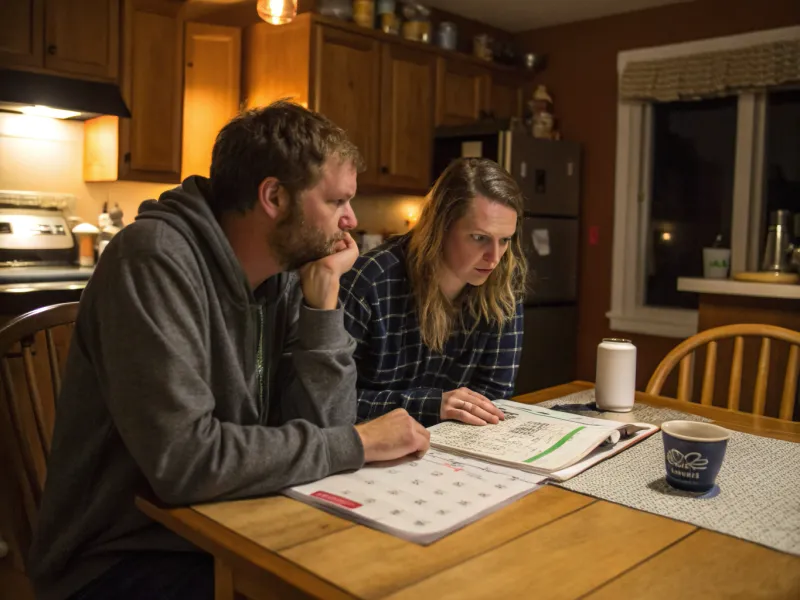
Future plans used to be bright and vivid, filled with dreams you couldn’t wait to chase together. Vacations, dream homes, family plans—you’d light up at the thought of what was ahead. But now, those conversations feel impossible. When the topic comes up, you hesitate, unsure of what to say.
Your partner’s indifference doesn’t help. Discussions about next year’s goals or even next weekend’s plans feel forced, as if you’re both avoiding a truth you don’t want to admit. The shared dreams you once nurtured now feel like faded sketches, the color drained by time and tension.
It’s not that you’ve stopped imagining a future; it’s that the thought of building one together feels exhausting, maybe even painful. The silence about what lies ahead isn’t just a void—it’s a reflection of the uncertainty that clouds your present.
6. There’s a lack of physical intimacy.

Once, a hug could fix anything. A brush of hands, a stolen kiss, even a playful nudge—it all felt natural and comforting. Now, those moments are rare, and when they do happen, they feel forced. The space between you has grown cold, a silent chasm that neither of you seems willing to cross.
Lying in bed, you instinctively move to opposite sides, the middle becoming an unspoken boundary. It’s not about physical intimacy, though that may be missing too. It’s the casual intimacy—the way you used to reach for each other without thinking.
Now, even a touch on the arm feels heavy, laden with unspoken tension. Physical closeness requires emotional vulnerability, and when that’s strained, touch becomes a minefield. You don’t know how to bridge the gap, and so the distance grows, one unspoken word and untouched hand at a time.
7. You envy happy couples.

You see them everywhere—holding hands in the park, laughing over coffee, stealing glances that speak a thousand words. And instead of feeling happy for them, there’s a pang in your chest. It’s not bitterness; it’s a quiet longing.
They remind you of what you once had—or at least, what you thought you had. It’s not about wishing them harm; it’s about wishing for that ease, that connection, that spark that now feels so far away. You try not to compare, but it’s hard when their love seems so effortless while yours feels like an uphill climb.
Seeing them isn’t just a reminder of what you’ve lost—it’s a reflection of what you still yearn for, deep down. And it hurts, doesn’t it? To realize you’re mourning something that’s slipping away while still trying to hold it together.
8. Arguments are frequent and unresolved.
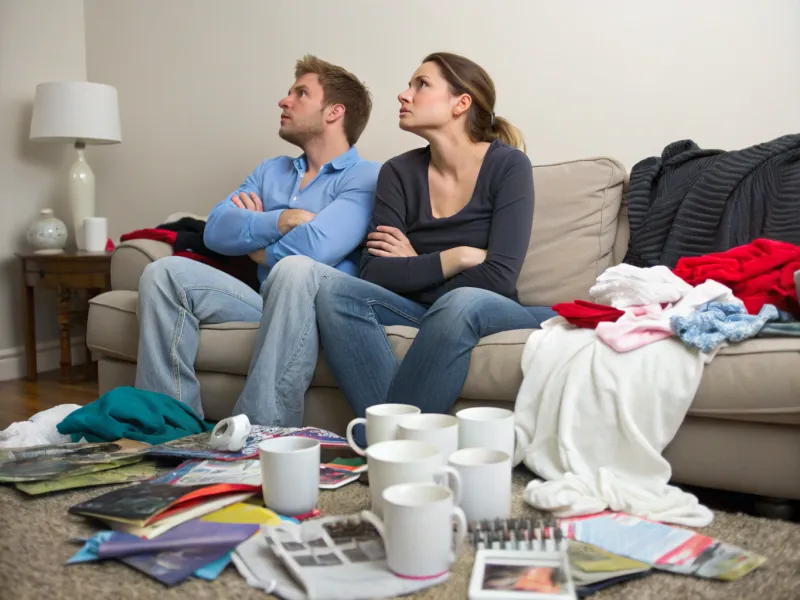
Remember when disagreements were productive? You’d hash things out, find common ground, and end with a hug—or at least a sense of relief. Now, arguments seem to have no finish line. Every discussion feels like a rerun of the last, with no progress and no resolution.
Even minor issues—dishes left in the sink, a forgotten errand—can spark a blowout. And it’s not really about the dishes, is it? These fights are the surface ripples of much deeper waters, carrying years of unresolved tension. Sometimes the arguments explode, leaving both of you exhausted.
Other times, they fizzle out into silence, neither of you willing to reach out. It’s draining, this constant cycle of conflict with no closure. Instead of bringing you closer, these exchanges build walls, brick by brick, making reconciliation feel further out of reach with every passing day.
9. You fantasize about life without them.

It sneaks up on you in quiet moments—the thought of waking up in a space that feels truly yours. A place without the constant tension, where you can breathe freely. You’re not necessarily imagining grand adventures or falling in love with someone else. Often, the fantasy is just… peace.
The absence of arguments, of awkward silences, of feeling unseen. These daydreams don’t feel malicious; they feel like a safe space to escape to when reality feels too heavy. You tell yourself it’s harmless, that everyone wonders about the “what ifs.”
But deep down, you know these thoughts are a sign. They’re your heart’s quiet way of whispering what your mind isn’t ready to say out loud. It’s not about wanting to leave, necessarily—it’s about craving the lightness that feels so far away in your current reality.
10. You don’t celebrate anniversaries anymore.

Anniversaries used to be a big deal—dinner reservations, handwritten cards, meaningful gifts. Now? They come and go without much fanfare. Maybe you both pretend to forget, or one of you suggests a halfhearted dinner, but the celebration feels forced.
Instead of excitement, the day brings a dull ache, a reminder of how much has changed. You scroll through social media, seeing others post glowing tributes to their partners, and feel a twinge of something—sadness, maybe, or guilt for not feeling the same way.
It’s not that you’ve forgotten what anniversaries stand for. You remember the love, the joy, the hope you felt on your wedding day. But now, marking another year feels less like a milestone and more like an obligation. You wonder if the effort to celebrate is worth it when the meaning behind it feels so far removed.
11. You feel more like a caretaker than a partner.

When did it change? Once, your marriage felt like a partnership—two people working together to build a life. Now, it feels like you’re doing most of the heavy lifting, emotionally or even physically. You’re the one organizing, nurturing, fixing, managing.
And while you love your partner, it’s hard not to feel overwhelmed. The care you give doesn’t feel reciprocal anymore—it feels expected, even taken for granted. Instead of being their equal, you feel more like their parent, their counselor, or their nurse. And it’s not that you begrudge them care or support.
It’s just that the balance feels off. Relationships thrive on give and take, but lately, all you do is give, while your needs go unmet. This imbalance leaves you feeling drained and lonely, like you’re carrying the weight of two people without anyone to lighten your load.
12. You secretly wish for a fresh start.

The thought of starting over doesn’t feel so far-fetched anymore. It’s not about running away or giving up—it’s about the quiet longing for something different, something lighter. You wonder what it would feel like to wake up with a clean slate, unburdened by the emotional baggage that’s piled up over the years.
These thoughts aren’t always loud. They creep in during moments of frustration or sadness, painting a picture of a life where you feel free again. Maybe it’s a new home, a new routine, or just the absence of the tension that weighs you down now. These daydreams don’t mean you’ve stopped caring.
They’re a reflection of your need for something to change. Whether that fresh start happens together or apart, the desire itself is a sign that the current situation isn’t sustainable—and your heart knows it.
13. You avoid physical touch.

Touch was once your love language. Holding hands, hugs that lingered, a quick kiss in passing—they were all effortless ways of saying, “I’m here. I see you.” But now, physical touch feels foreign, like wearing clothes that don’t quite fit.
You pull away from hugs, avoid sitting too close, or find excuses to be “too busy” when they reach out. It’s not spiteful; it’s protective. Letting them touch you feels too vulnerable, like reopening a wound that hasn’t healed. The distance isn’t just physical—it’s emotional, and it’s palpable.
Even when you share a bed, there’s a gap between you that feels as wide as an ocean. It’s not about the lack of desire—it’s the weight of everything left unsaid, unresolved. And until that emotional barrier comes down, touch will continue to feel like a bridge you’re too afraid to cross.
14. You’ve stopped sharing your day.
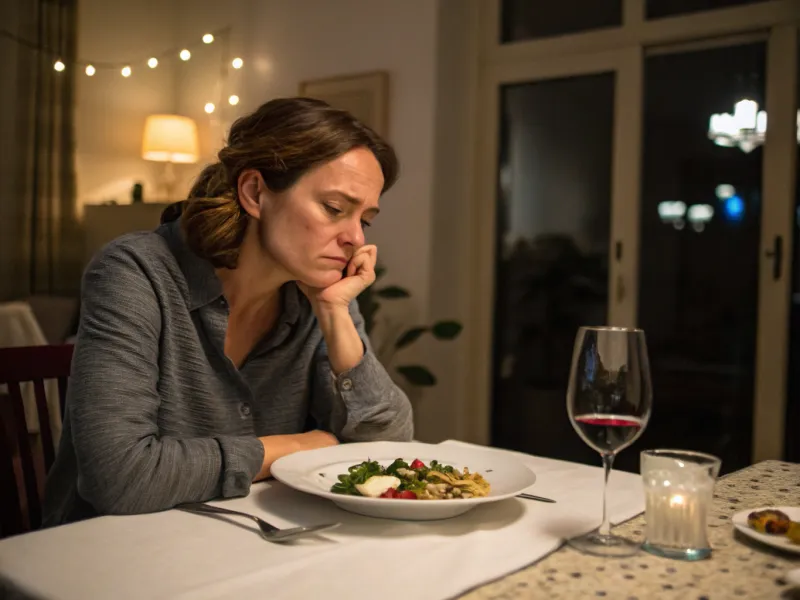
Remember when you used to tell them everything? The funny coworker story, the frustrating traffic, the random thought that popped into your head? Now, those moments feel like they belong to someone else—your best friend, your sibling, maybe just your journal.
The idea of sharing them with your partner feels… pointless. Either they won’t really listen, or their response will feel indifferent. So you keep it all to yourself, building walls brick by brick. It’s not just about the stories—it’s about what they represent.
Sharing the little details of your day was once a way to connect, to let them into your world. But when that connection feels one-sided or unreciprocated, it’s easier to stay silent. Slowly, the gap grows wider, until the life you once shared feels like two parallel tracks that never meet.
15. You feel emotionally distant.
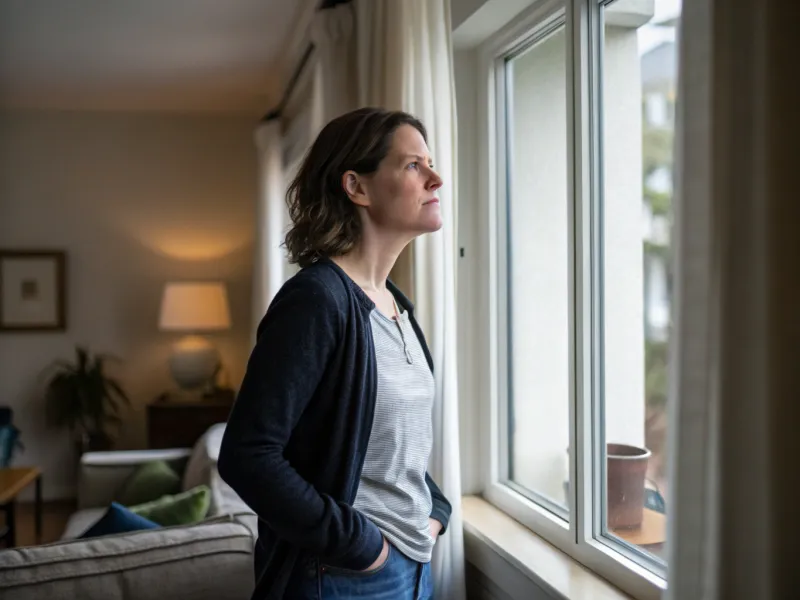
You’re in the same room, but it feels like you’re worlds apart. Emotional distance is sneaky—it creeps in slowly, unnoticed at first, until one day, you realize how far you’ve drifted. Conversations lack depth. Shared experiences feel hollow.
Even when you’re physically close, the connection feels like it’s been unplugged. You miss the way things used to be—the easy laughs, the long talks, the feeling of being completely understood. But now, there’s a wall between you, invisible but impenetrable.
You don’t know how it got there, and you don’t know how to take it down. The emotional distance isn’t just painful—it’s lonely. And the longer it lingers, the harder it feels to find your way back. You wonder if the bond you once had can be rebuilt—or if the damage is too great to repair.
16. Your partner feels like a roommate.
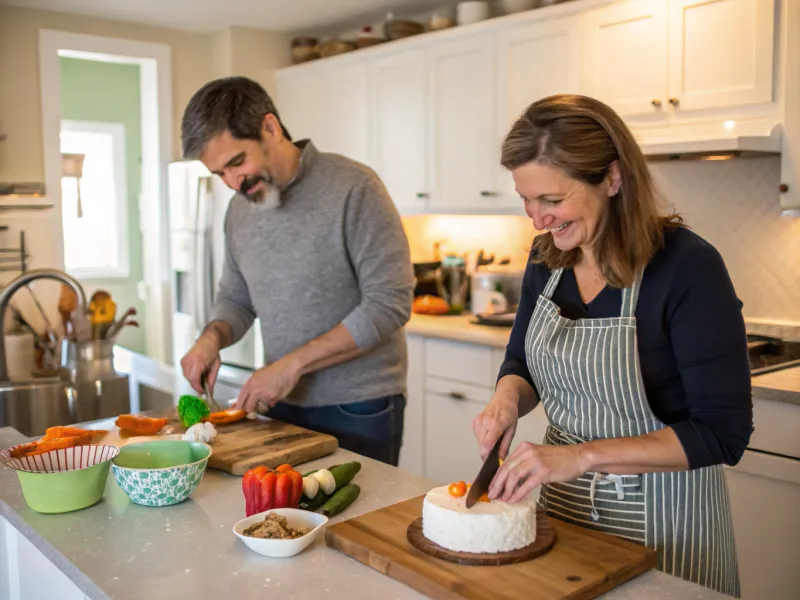
You pass each other in the hallway, exchange polite “how was your day?”s, and go about your routines. But deep down, it feels like you’re sharing a house, not a life. The intimacy that once made your marriage special has faded, replaced by a functional coexistence.
You split chores, share responsibilities, maybe even co-parent effectively—but it’s all transactional, like roommates managing a shared lease. You miss the connection, the spark, the little moments that made your relationship feel alive. Now, it’s as if you’re just two people living parallel lives.
The warmth that used to come from holding hands or stealing a quick kiss is gone, replaced by a sense of duty. You don’t fight about it, but you don’t talk about it either. And as the silence grows, so does the gap between you, leaving you to wonder: Is this just how it is now?
17. There’s a continuous feeling of resentment.

Resentment doesn’t barge in loudly; it sneaks in, quiet and insidious. At first, it’s just a little frustration—a comment that stung, a need that went unmet. But over time, those small grievances pile up, turning into something heavier.
You start keeping mental score, tallying every time you felt ignored, unsupported, or dismissed. And instead of fading, the resentment sticks around, coloring every interaction. Even their smallest mistakes—leaving their socks on the floor, forgetting to text back—feel like proof that they don’t care.
The love you once felt is still there, but it’s buried under layers of bitterness. And the worst part? It’s hard to talk about it without triggering defensiveness or more conflict. So the resentment lingers, growing stronger, making reconciliation feel like an uphill battle.
18. You feel unheard and unseen.

You could shout from the rooftops, but it feels like your words would still fall flat. There’s a loneliness in feeling unheard—a deep ache that says, I’m here, but you don’t really see me.
It’s not just about big conversations; it’s about the little moments, the passing comments, the way they seem to check out when you’re talking. Over time, you start to second-guess yourself. Am I asking for too much? you wonder. But it’s not about wanting grand gestures.
It’s about craving acknowledgment, the reassurance that your thoughts and feelings matter. The absence of that leaves you feeling invisible, like a ghost in your own relationship. It’s isolating, this sense of being overlooked by the one person who’s supposed to know you best.
And while you keep trying to be heard, the silence you get in return speaks volumes.
19. You rely on others for emotional support.

You didn’t plan for it to happen, but over time, you’ve started opening up to other people more than your partner. Friends, family, even coworkers—they’ve become your go-to confidants. They’re the ones who listen, who validate your feelings, who seem to “get it.”
It’s not that you don’t love your partner—it’s that they feel like a closed door. Sharing with them feels harder than it should, so you look elsewhere. The shift is subtle at first: a venting session with a friend here, an extra-long chat with your sibling there.
But eventually, you realize you’re relying on these connections to fill a void your marriage once filled. It’s comforting, sure, but it’s also a sign. A marriage thrives on emotional intimacy, and when that’s missing, you’re bound to seek it elsewhere. The question is: Can the emotional bridge between you and your partner be rebuilt?
20. You feel trapped in routine.

Routines can be comforting, but when the spark fades, they start to feel like shackles. Every day feels like a rerun—wake up, work, chores, bed. Rinse and repeat. The monotony isn’t just boring; it’s stifling. You used to find joy in the little rituals—Sunday pancakes, evening walks—but now they feel empty.
You’re both stuck in the same rhythm, but instead of moving together, you’re just going through the motions. There’s no spontaneity, no excitement, no sense of “we’re in this together.” You find yourself fantasizing about breaking free, shaking things up, just to feel alive again.
But the weight of the routine pulls you back, leaving you to wonder if this is all there is. It’s not just about the routine itself—it’s about what it represents: a relationship that’s lost its spark and is struggling to find its way back to joy.
21. You avoid eye contact.
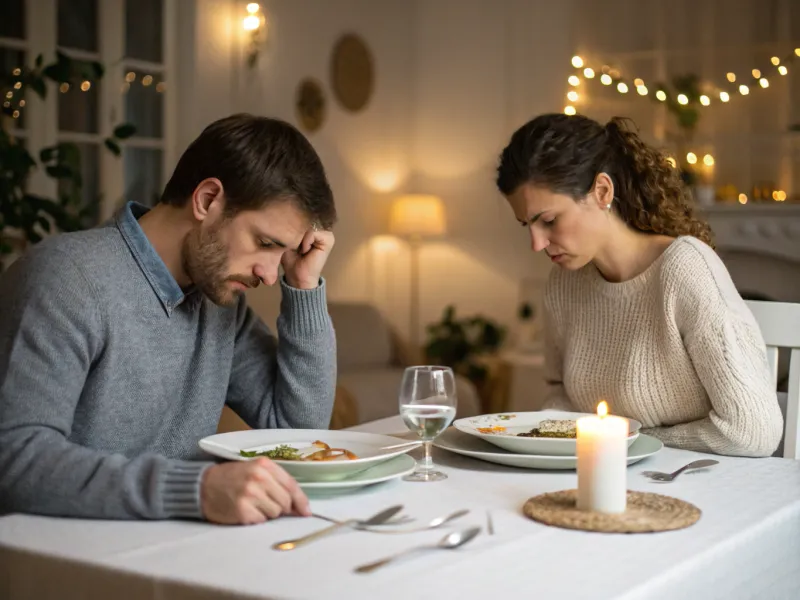
Eye contact used to be second nature. A shared glance across a crowded room, a lingering look that said more than words ever could. But now? You avoid it. Looking into their eyes feels like opening a door you’re not ready to walk through.
Maybe it’s because you’re afraid of what you’ll see—disappointment, indifference, or even a reflection of your own sadness. Or maybe it’s because eye contact feels too vulnerable, too intimate for the distance that’s grown between you. Instead, you focus on your phone, the TV, or the dog.
Anything to avoid the silent confrontation that meeting their gaze would bring. It’s not intentional, but it’s telling. Eye contact is one of the simplest ways to connect, and its absence speaks volumes. The question isn’t just, Why does it feel so hard? It’s, How do we find our way back?
22. You’ve stopped dreaming together.

You used to dream together all the time. Big dreams, small dreams—it didn’t matter. Planning vacations, imagining your future, even silly “what if” scenarios brought you closer. But now, those dreams feel like distant memories. When the topic comes up, there’s hesitation, maybe even avoidance.
The excitement that once fueled your shared vision has been replaced by uncertainty or apathy. It’s not just about big plans like buying a house or retiring together—it’s the small stuff, too. Even imagining what you’ll do next weekend feels draining. Instead of dreaming as a team, you’re dreaming alone.
And when you’re not on the same page about the future, the present feels even more fragile. Dreams are about more than plans—they’re about hope, connection, and a shared purpose. Without them, it’s easy to feel like you’re just two people going through life side by side, not together.
23. There’s an absence of laughter.
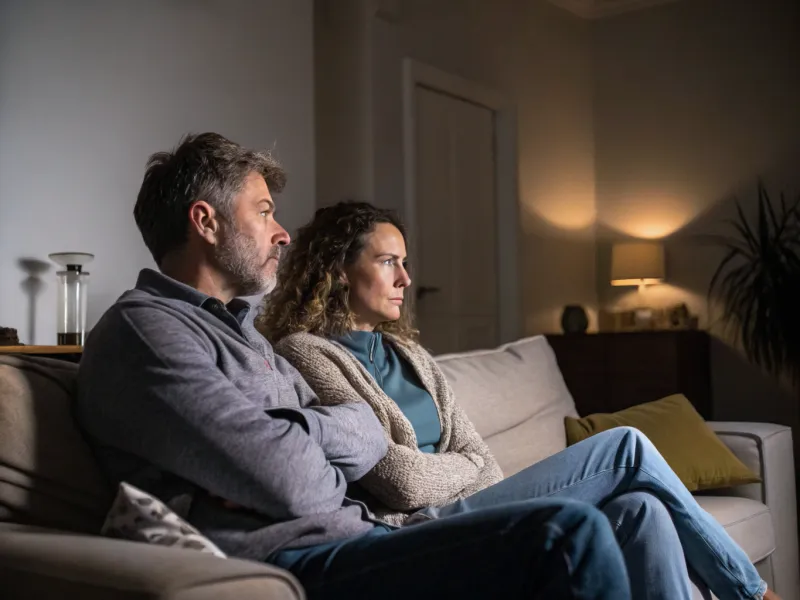
Laughter is the glue that holds relationships together, but in your marriage, it’s gone quiet. The little jokes, the goofy moments, the belly laughs that left you both breathless—they’ve been replaced by silence or serious conversations. Even when something funny happens, it feels harder to share. Maybe you’re worried it’ll fall flat, or maybe it’s just habit now to keep those moments to yourself. Without laughter, everything feels heavier. Life is stressful enough, and laughter was once the antidote to all of it. Now, its absence is a glaring reminder of how much has changed. It’s not just about humor—it’s about joy, connection, and the ability to find lightness together. Without it, the relationship feels weighed down, like it’s missing a crucial piece of its foundation. And you can’t help but wonder, Can we find that spark again?
24. You feel indifferent about their achievements.

Once upon a time, their wins felt like your wins. You’d cheer them on, celebrate every promotion, every milestone, every little success. But now? It’s hard to muster enthusiasm. Their accomplishments feel distant, like something that happens in another world.
You might offer a polite “congrats” or a quick smile, but it’s more out of obligation than genuine joy. It’s not that you don’t care about them—you do. It’s just that the connection that made their happiness contagious feels frayed.
You used to be their biggest fan, but now it’s like you’re watching from the sidelines, disconnected from their victories. This indifference isn’t about their success; it’s about the growing emotional distance.
And while you may not want to feel this way, it’s hard to fake excitement when the bond that made you care so deeply feels like it’s slipping away.
25. You avoid discussing finances.

Money talk was never fun, but it used to be productive. You’d sit down, crunch numbers, and plan together. Now, the thought of discussing finances makes your stomach turn. You avoid the conversation entirely or keep it as short and surface-level as possible.
Maybe it’s because financial talks seem to spark arguments, or maybe it’s because they’ve started to highlight just how far apart you’ve grown. Budgeting for a shared future feels meaningless when you’re unsure what that future even looks like.
The tension around money isn’t just about dollars and cents—it’s about the lack of trust, transparency, or shared goals that finances often represent. Avoiding it doesn’t solve the problem, but it feels safer than diving into what could be a minefield. Deep down, you know it’s not just the numbers that need attention—it’s the relationship behind them.
26. You feel like you’re living separate lives.
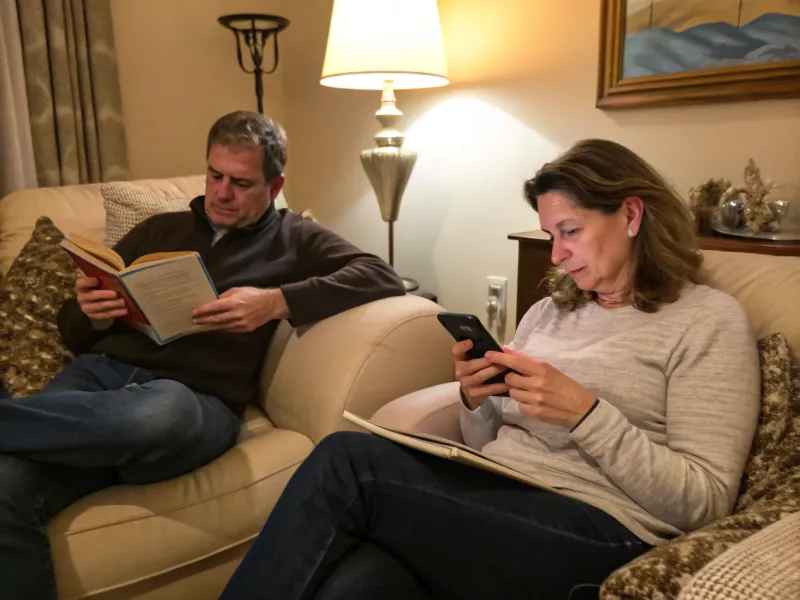
You share a roof, maybe even a last name, but that’s where the overlap ends. Your daily routines hardly intersect, and your interests feel worlds apart. It’s not just about hobbies or activities—it’s the emotional separation that stings. You could spend an entire weekend in the same house and barely interact.
Instead of feeling like partners, you feel like two people walking parallel paths, never quite meeting in the middle. You handle your responsibilities, they handle theirs, and life just… moves on. The shared experiences that once bonded you—late-night talks, spontaneous adventures, lazy Sundays—are now distant memories.
It’s not that you don’t care about each other; it’s that the connection feels so faint, it’s hard to find a way back. Living separate lives might be easier than confronting the truth, but deep down, it leaves you feeling lonely, even when you’re together.
27. You avoid talking about your feelings.
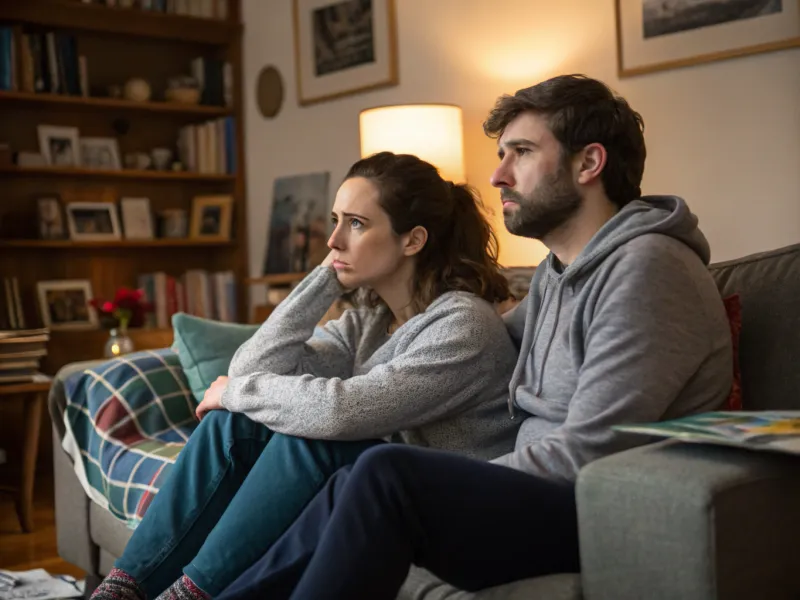
Emotional honesty was once your thing. You could talk for hours about how you felt, what you wanted, what scared you. But now? The thought of opening up feels daunting.
Maybe it’s because past attempts have led to misunderstandings or conflict, or maybe it’s because you’re afraid of what their reaction might be—dismissiveness, defensiveness, or worse, indifference. Instead, you keep your feelings bottled up, convincing yourself it’s easier this way. But it’s not, is it?
Holding everything in leaves you feeling like a pressure cooker about to explode. You wish you could just say what’s on your mind without fear of rejection or judgment. Yet every time you try, it feels like the distance between you grows instead of shrinks.
The silence around your emotions becomes yet another wall in a relationship already struggling to stay connected.
28. You’ve lost interest in shared activities.
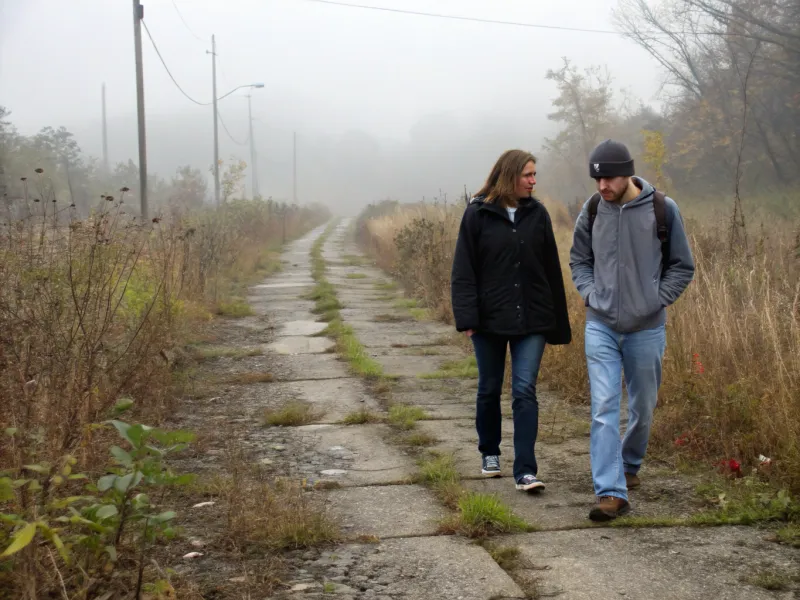
Remember when you loved doing things together? Whether it was cooking dinner, going for a hike, or binge-watching your favorite show, those moments were effortless and fun. Now, shared activities feel like obligations.
Instead of bonding over them, you find yourself counting down the minutes until they’re over. Even something as simple as a movie night feels strained, like you’re performing a role instead of genuinely enjoying the moment. It’s not that you’ve outgrown the activities—it’s the emotional disconnect that’s stealing the joy.
The shared laughter, the inside jokes, the easy flow of conversation—they’re all missing. And without that, the activities themselves feel hollow. You wonder if it’s worth trying to rekindle the spark through shared experiences, or if the gap between you has grown too wide to bridge. Either way, the joy of “us” feels like it’s faded into the background.
29. Change in Communication Patterns
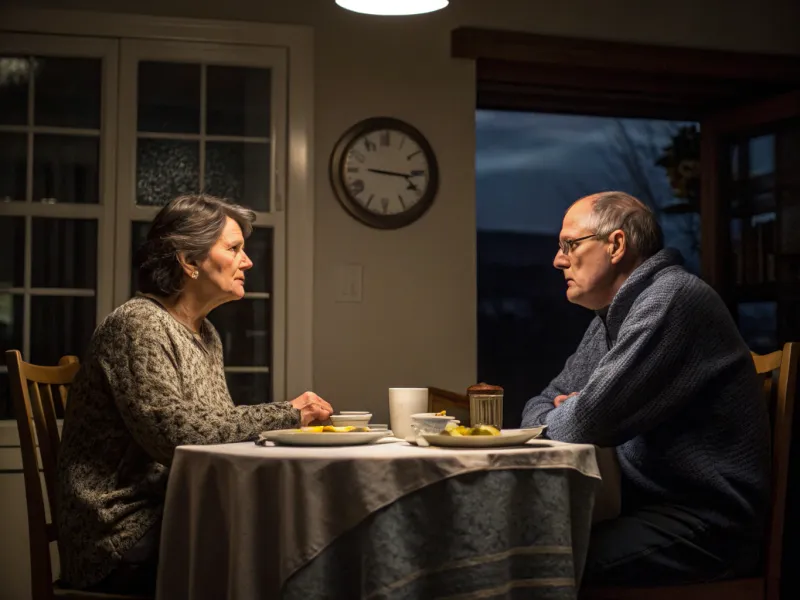
The conversations you once loved are nowhere to be found. Instead of deep talks that left you feeling closer, your exchanges are now purely functional. “Did you pay the bill?” “What’s for dinner?” “Can you pick up the kids?”
The logistics of life have taken over, leaving no room for the kind of meaningful connection that used to define your relationship. Even when you try to dig deeper, it feels awkward or forced, as though you’re speaking a different language.
You miss the days when you could talk for hours about everything and nothing, sharing dreams, fears, and wild ideas. Now, those conversations are replaced by long silences or halfhearted replies. It’s not just the lack of words—it’s the absence of emotional intimacy that the words used to carry. And every surface-level chat only reminds you of how far apart you’ve drifted.
30. Emotional Investment Elsewhere

Maybe it’s your friends, your work, or a newfound hobby. Whatever it is, you’re pouring more of your heart into something—or someone—outside your marriage. It’s not about infidelity; it’s about fulfillment. The conversations, validation, and connection you crave feel easier to find elsewhere.
And while those outlets might bring temporary relief, they also highlight what’s missing at home. You find yourself opening up to a friend in ways you haven’t with your partner in years, or throwing yourself into work to avoid the feelings bubbling under the surface.
These distractions can feel comforting, but they’re also a sign. Emotional energy is finite, and if you’re spending it outside your relationship, it leaves less for the connection that needs it most. It’s not about guilt—it’s about recognizing the imbalance and deciding whether that emotional investment can—or should—shift back to your marriage.
31. Increased Focus on Career

Work has become your escape. You volunteer for extra projects, stay late at the office, or dive headfirst into tasks that keep your mind occupied. It’s not just about ambition; it’s about finding purpose in a place where you feel capable and appreciated.
At work, you’re not dealing with the unspoken tension, the unresolved arguments, or the emotional distance that waits for you at home. You feel productive, in control—two things that seem harder to grasp in your relationship. But as fulfilling as work might be, you know it’s not a replacement for connection.
The long hours and endless to-do lists aren’t just about career growth—they’re a way to avoid the growing void in your marriage. And while work might fill the gaps for now, deep down, you know the escape is only temporary. The real challenges are waiting for you when you clock out.
32. Avoidance of Shared Activities

What used to be your favorite part of the week—spending quality time together—now feels like something to dodge. Whether it’s watching a movie, taking a walk, or tackling a home project, you find excuses to be busy elsewhere.
It’s not that you don’t care, but the tension or indifference that’s crept into these moments makes them hard to enjoy. You’d rather read a book, meet a friend, or even scroll mindlessly on your phone than force a smile through another strained interaction.
The shared joy you once found in even the simplest things feels distant now. Every canceled plan or avoided invitation adds to the growing pile of emotional distance, leaving you both in your separate corners. You know you’re withdrawing, but the effort to rekindle those moments feels overwhelming, and so you let them slip away, one skipped activity at a time.
33. Frequent Nostalgia
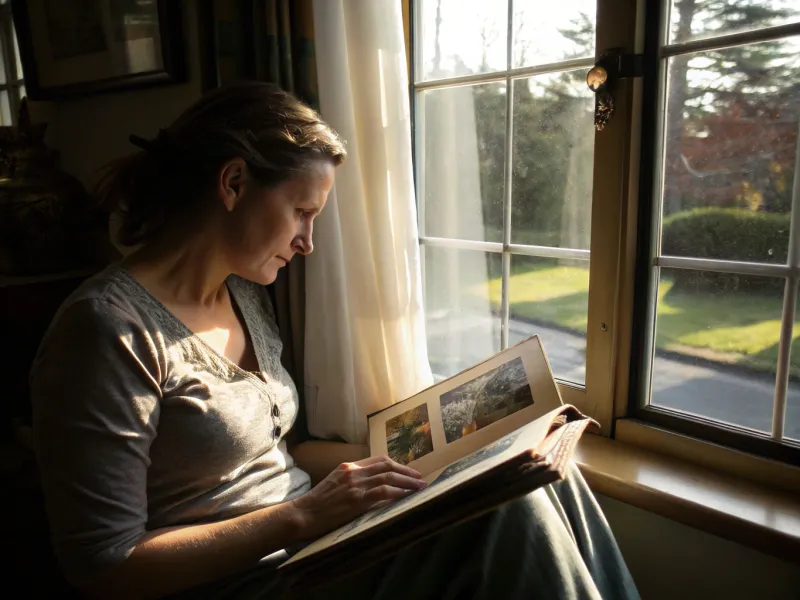
Lately, you find yourself lost in memories—your wedding day, the first apartment you shared, that road trip where you laughed so hard you cried. These moments pop into your mind unbidden, bittersweet reminders of what you had. At first, the nostalgia feels comforting, like a warm hug from the past.
But then, it shifts, and you’re left wondering: Where did that version of us go? These memories don’t just remind you of the joy you’ve lost—they highlight the stark contrast between then and now. Sometimes, you wish you could step back in time, relive those golden moments, and somehow fix what feels broken now.
Nostalgia can be a beautiful thing, but when it pulls you away from the present, it’s also a sign that your heart is searching for what’s missing. And that longing for the past can be both a comfort and a quiet ache.
34. You feel more relief than sadness at the thought of separation.
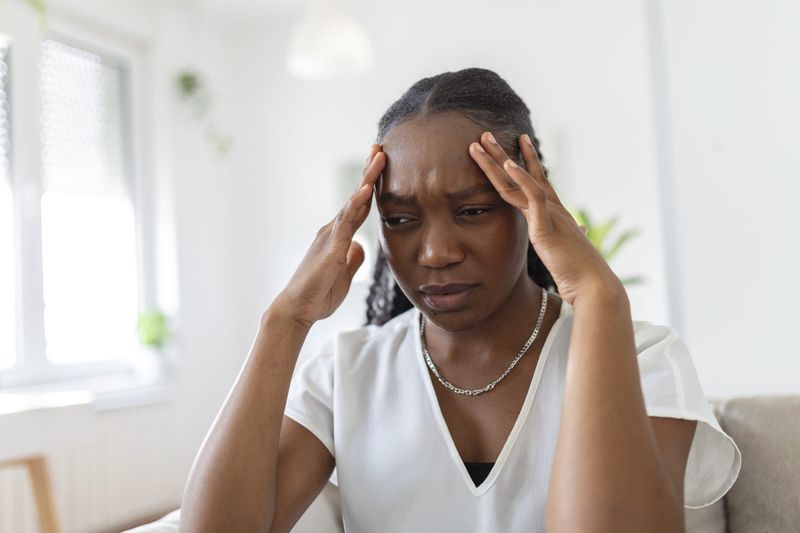
When the idea of separation used to cross your mind, it brought tears. Guilt. Panic. But lately, it’s not grief you feel—it’s relief. Not a joyless, spiteful relief, but a quiet, steady kind. The kind that whispers, maybe I could breathe again.
You don’t daydream about revenge or starting over with someone new. You simply imagine peace. A space where your emotions aren’t constantly being weighed, where your energy isn’t being drained just by existing in the same room. And that imagined peace feels… good.
It doesn’t mean you’re ready to walk away. But it does mean your heart is tired. And maybe, just maybe, you’re starting to realize that sadness isn’t the only valid emotion in the face of ending something. Sometimes, peace is the beginning you didn’t know you needed.
35. You’ve already started grieving—while still in it.
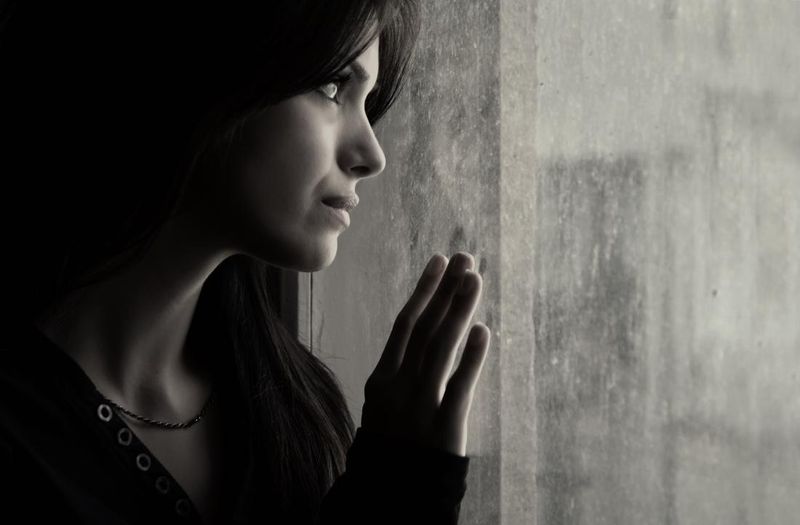
Grief doesn’t always wait for endings. Sometimes, it starts quietly, long before the goodbye. You feel it in the way you cry when no one’s looking. In the way you stare at them across the room and wonder if they notice how far away you are.
You grieve the closeness that faded, the laughter that stopped, the version of you that once felt chosen, wanted, seen. The mourning is invisible to everyone else—you’re still showing up, still cooking dinner, still doing all the things. But inside, you’re breaking.
And that’s the hardest part: grieving someone who’s still right beside you. Because letting go while still holding on might be the loneliest kind of love there is. But acknowledging this grief is brave. It’s how healing begins—even if you’re still unsure where the story ends.







